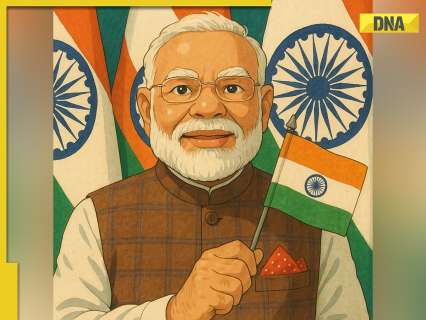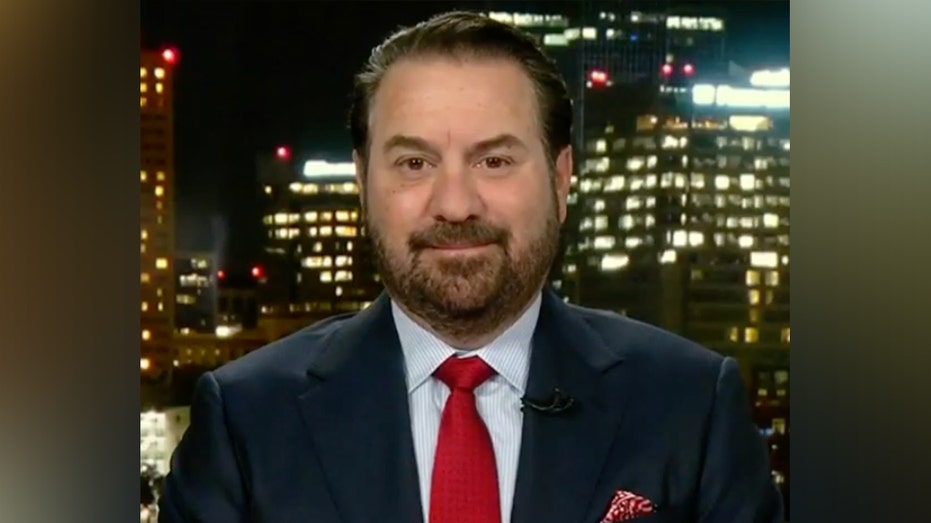Who was Cyanide Mallika, India’s first convicted female serial killer, presented herself as a devoted pious woman

She is believed to be India’s first convicted female serial killer. Even today, her name sends chills down people’s spines.
Chhattisgarh: 16 Naxalites gunned down, two DRG jawans injured in encounter in Sukma

The exchange of fire began following a joint anti-Naxal operation launched by the District Reserve Guard (DRG) and Central Reserve Police Force (CRPF) on Friday.
Israel bombs Beirut for first time since ceasefire
[unable to retrieve full-text content] The Israeli military destroyed a building in a residential area of southern Beirut on Friday.
How the ‘war on terror’ paved the way for student deportations in the US

When Asad Dandia received a message from a young man named Shamiur Rahman in March 2012, he had no reason to suspect that he was under the watchful eye of state surveillance. Rahman simply seemed interested in deepening his relationship with Islam and getting involved in charity work. As a Muslim community organiser in New York City, Dandia was happy to help. The young man quickly became a regular at meetings, social events and efforts to help low-income members of the community. Rahman even spent a night in Dandia’s family home. But nearly seven months later, Rahman made a confession over social media: He was an undercover informant for the New York City Police Department (NYPD). Dandia ultimately joined a class-action lawsuit, alleging the city of New York singled out Muslim communities for surveillance as part of the wider “war on terror” in the United States. Four years later, the city settled, agreeing to protections against undue investigations into political and religious activities. Advertisement But Dandia sees an echo of his experience in the present-day arrests of pro-Palestinian student protesters from abroad. He is among the activists and experts who have observed an escalation of the patterns and practices that became core features of the “war on terror” — from unwarranted surveillance to the broad use of executive power. “What I endured was very similar to what we’re seeing students endure today,” Dandia said. He noted that a lawyer who represented him is now working on the case of Mahmoud Khalil, a Columbia University student and permanent resident facing deportation for his pro-Palestine activism. The administration of President Donald Trump has accused Khalil of supporting terrorism, though it has yet to charge him with a crime or release evidence to substantiate the claim. Dandia said that the belief that Muslim, Arab and immigrant communities are inherently suspect is the common thread between their experiences. “Even if what Trump is attempting now is unprecedented, it’s drawing from longstanding traditions and policies.” From neighbours to enemies Scholars and analysts say that one of the throughlines is the pairing of harsher immigration enforcement with rhetoric focused on national security. The “war on terror” largely began after the attacks on September 11, 2001, one of which targeted New York City. In the days that followed, the administration of former President George W Bush began detaining scores of immigrants — nearly all of them from Muslim, Arab and South Asian communities — over alleged ties to terrorism. Advertisement The American Immigration Council, a Washington-based nonprofit, estimates that 1,200 people were arrested in the initial sweep. Many were ultimately deported. But the immigration raids did not result in a single conviction on terrorism-related charges. A 2004 report by the American Civil Liberties Union (ACLU) noted that the government nevertheless advertised the deportations as “linked to the September 11 investigation”. “Almost immediately after 9/11, Muslim communities were treated not as fellow New Yorkers who were living through the trauma of an attack on their city, but as potential accessories, witnesses, or perpetrators of a follow-on attack,” said Spencer Ackerman, a reporter who covered the war on terror and is the author of the book Reign of Terror. The ACLU report says that some of those detained were held in solitary confinement and only allowed to leave their cells with shackles on their hands and legs. Some were kept in detention long after the government cleared them of any wrongdoing. Fear in ‘the homeland’ Nikhil Singh, a history professor at New York University, believes that period of heightened fear caused the US to look inward for enemies, among its own communities. “The argument that the US was fighting these non-state groups who didn’t have borders started to imply that the fight against those enemies could take place anywhere, including in what the Bush administration started to call ‘the homeland’,” said Singh. He pointed out that those post-September 11 detentions exercised a broad view of executive power, in order to justify a lack of due process for alleged terror suspects. Advertisement “A lot of what’s happening now can be traced back to this moment, where this argument became normalised that the executive is responsible for keeping the country safe and, for that reason, needs to be able to suspend basic rights and ignore constitutional restraints.” Art Eisenberg, executive counsel at the New York branch of the ACLU, explained that the history of targeting immigrant communities for national security concerns stretches beyond the “war on terror”. “The origins of policing and surveillance and undercover work targeting immigrant groups goes all the way back to the beginning of the 20th century. The New York City police intelligence bureau used to be called the Red Squad, but earlier it had been called ‘the Italian squad’,” said Eisenberg. Over time, those operations morphed to target new sources of potential dissent: communists, civil rights activists and the Black Panthers, among others. But he added that the “war on terror” marked an escalation of that targeting. And those types of actions can have lasting effects on communities. The ACLU notes that, in the years after the September 11 attacks, more than one-third of Pakistanis in a Brooklyn neighbourhood known as “Little Pakistan” were deported or chose to leave the area. Later, in 2012, when it was revealed that authorities had been spying on Dandia’s organisation, donations started to dry up, and the mosque where they held meetings told them to meet outside instead. No one had been charged with a crime. But the chilling effect of the surveillance caused the organisation to eventually close its doors, according to Dandia. Advertisement “People always ask this question: If you’re not doing anything wrong, why should you worry?” said Dandia. “But it’s the government that is deciding what is right and wrong.” Escalating attacks Under the Trump administration, critics say vague allegations of terrorism continue to be seized upon as a pretext to silence dissent. In a statement about Khalil’s arrest, the Department of Homeland Security claimed
Judge blocks Trump effort to shutter Consumer Financial Protection Bureau

A federal judge has ordered a halt to attempts under President Donald Trump to dismantle the Consumer Financial Protection Bureau (CFPB), an independent government agency charged with investigating and preventing financial malpractice. On Friday, US District Judge Amy Berman Jackson granted a request from employees, advocates and union representatives to issue a preliminary injunction, preventing the bureau from being shuttered while court proceedings continue. “The Court cannot look away or the CFPB will be dissolved and dismantled completely in approximately thirty days, well before this lawsuit has come to its conclusion,” the judge wrote in her order. She agreed with the plaintiffs that there was a risk of immediate, irreparable harm, given the speed with which the Trump administration’s efforts have unfolded. “If the defendants are not enjoined, they will eliminate the agency before the Court has the opportunity to decide whether the law permits them to do it,” Berman Jackson wrote. Advertisement The ruling was the latest in the myriad court decisions facing the Trump administration’s campaign to streamline the federal government, often through large-scale staffing cuts and the elimination of entire agencies and departments. Earlier in the day, Secretary of State Marco Rubio even announced he had informed Congress of plans to absorb the US Agency for International Development (USAID) into the State Department, putting its independent functions under executive control. But critics have questioned whether such manoeuvres are legal. They argue that agencies like USAID and the CFPB were created as independent organisations under Congress and that the president has overstepped his constitutional bounds by overriding those congressional decisions. The CFPB, in particular, has long been a target of conservative ire. Established in 2011, the bureau was founded in response to the financial crisis of 2007 that was spurred on by predatory lending practices. As an independent agency, the CFPB served as a watchdog, collecting research, monitoring financial markets and fielding complaints from ordinary consumers facing illegal or deceptive actions from their banks or financial service providers. As of December 2024, the bureau had claimed credit for returning $21bn to consumers through debt relief, reductions or monetary compensation stemming from its enforcement activities. But many Republicans and financial industry leaders have chafed at its enforcement and regulatory activities, accusing the bureau of hampering businesses. Advertisement On January 31, shortly after the start of his second term as president, Trump moved to fire the bureau’s director, Rohit Chopra, and replace him with an ally. By February 8, the bureau had been ordered to cease all investigations, including pending ones, and stop any enforcement activity fundamentally halting its functions. The next day, its headquarters was closed. The bureau also started to see the same widespread layoffs facing other federal agencies. Judge Berman Jackson opened her 112-page decision with quotes from some of the CFPB’s critics within the Trump administration. “The CFPB has been a woke and weaponised agency against disfavoured industries and individuals for a long time. This must end,” said Russell Vought, the director of the Office of Management and Budget under Trump. Another critic quoted in Berman Jackson’s order was Trump adviser and billionaire businessman Elon Musk, who called to “delete” the bureau. “CFPB RIP,” he wrote succinctly on February 7, as his Department of Government Efficiency (DOGE) led the dismantling of the organisation. Musk has been accused of having a conflict of interest with the CFPB, as he expands the financial services available on his social media platform X. Judge Berman Jackson emphasised she did not take her decision lightly in the opening lines of her ruling. “The motion for preliminary injunction to be decided boils down to one question: should the Court take action to preserve the Consumer Financial Protection Bureau now before the case concerning its fate has been resolved?” Berman Jackson wrote. “That is an extraordinary step.” Advertisement Still, she indicated that the injunction was necessary: “The Court’s oversight is the only thing holding the defendants back.” Among the plaintiffs were the National Treasury Employees Union and the National Association for the Advancement of Colored People (NAACP), a prominent civil rights organisation. But there was also an individual named in the complaint: Reverend Eva Steege, an 83-year-old Lutheran pastor who sought the CFPB’s help for student loans she incurred while at seminary. While investigating Steege’s case, the CFBP found she not only qualified for loan forgiveness but also for $15,000 returned in overpayments. Steege is in hospice care at the time, according to the complaint. “It was her hope to resolve the debt and spare her family that burden after she died,” Judge Berman Jackson wrote in her ruling. But the sudden shutdown of the CFPB’s services left Steege in a lurch, without a resolution to her case or a refund of her overpayment. “Steege’s fear of leaving her surviving family members saddled with her student loan debt came to pass on March 15, when she died,” the judge explained. Berman Jackson said the case raised questions about the separation of powers under the US Constitution and whether the president had encroached upon “legislative authority”. “The evidence reveals that: the defendants were in fact engaged in a concerted, expedited effort to shut the agency down entirely when the motion for injunctive relief was filed,” she wrote. “While the President is free to propose legislation to Congress to accomplish this aim, the defendants are not free to eliminate an agency created by statute on their own, and certainly not before the Court has had an opportunity to rule on the merits of the plaintiffs’ challenge.” Advertisement She also highlighted what she called a “disingenuous” arguments from the Trump administration’s lawyers. “The Court is left with little confidence that the defense can be trusted to tell the truth about anything,” the judge wrote. Adblock test (Why?)
Myanmar-Thailand earthquake death toll passes 700

BREAKINGBREAKING, Myanmar’s military rulers say at least 694 people killed following earthquake that also killed 10 people in Thailand’s capital, Bangkok. The death toll from a huge earthquake that hit Myanmar and Thailand has passed 700, as rescuers dug through the rubble of collapsed buildings in a desperate search for survivors. At least 694 people were killed and nearly 1,700 injured in Myanmar’s Mandalay region – the country’s second-largest city and close to the epicentre of the quake – the country’s military government said in a statement on Saturday. In the Thai capital Bangkok – located 1,000km (620 miles) from the epicentre in Myanmar – about 10 more deaths have been confirmed. “Infrastructure such as roads, bridges, and buildings were affected, leading to casualties and injuries among civilians. Search and rescue operations are currently being carried out in the affected areas,” Myanmar’s military said in the statement, which raised the death toll sharply from a previously reported 144 deaths. The shallow 7.7-magnitude quake struck northwest of the city of Sagaing in central Myanmar in the early afternoon on Friday, followed minutes later by a 6.7-magnitude aftershock. Advertisement The quake destroyed buildings, downed bridges, and buckled roads across swathes of Myanmar, and due to patchy communications in remote areas many believe the true scale of the disaster has yet to emerge. Rescuers in Bangkok laboured through the night on Friday searching for workers trapped when a 30-storey skyscraper under construction collapsed, reduced in seconds to a pile of rubble and twisted metal by the force of the shaking. Bangkok Governor Chadchart Sittipunt said that around 10 people had been confirmed killed across the city, most in the skyscraper collapse. But up to 100 workers were still unaccounted for at the building site, close to the Chatuchak weekend market that is a magnet for tourists. “We are doing our best with the resources we have because every life matters,” Chadchart told reporters at the scene. “Our priority is acting as quickly as possible to save them all,” the governor said. Bangkok city authorities said they will deploy more than 100 engineers to inspect buildings for safety across the city after receiving more than 2,000 reports of damage. Adblock test (Why?)
India’s first expressway between Mumbai and Pune reduces travel time by 2 hours, doesn’t allow these vehicles

The expressway is a major milestone in India’s road development, offering faster, safer, and more efficient travel between two major cities.
‘Main character? No, he’s the whole storyline’: PM Modi’s Studio Ghibli moment goes viral

Taking to its X account on Friday, the government shared a series of pictures along with a caption that read, “Main character? No. He’s the whole storyline. Experience New India in Studio Ghibli strokes.”
India’s cheapest train competes with Rajdhani, Vande Bharat in speed; its AC coaches fare is just Rs…

AC coaches, for instance, come with a higher fare compared to sleeper and general coaches due to the added comfort and amenities.
Trump nominates former Arizona attorney general for US ambassador to Serbia

President Donald Trump announced Friday he had nominated former Arizona Attorney General Mark Brnovich to become the next U.S. ambassador to Serbia. “Mark is a proud Veteran of the Army National Guard, and previously served as Attorney General for the Great State of Arizona,” Trump wrote in a Truth Social post. “As the son of refugees who fled communism, Mark will be a strong advocate for Freedom, and always put AMERICA FIRST. Congratulations Mark!” TRUMP NOMINATES GEORGIA STATE SEN. BRANDON BEACH FOR US TREASURER CLICK HERE TO GET THE FOX NEWS APP Brnovich served as attorney general of Arizona from 2015 to 2023. He is married to Susan Brnovich, a U.S. District Court judge in Arizona.
